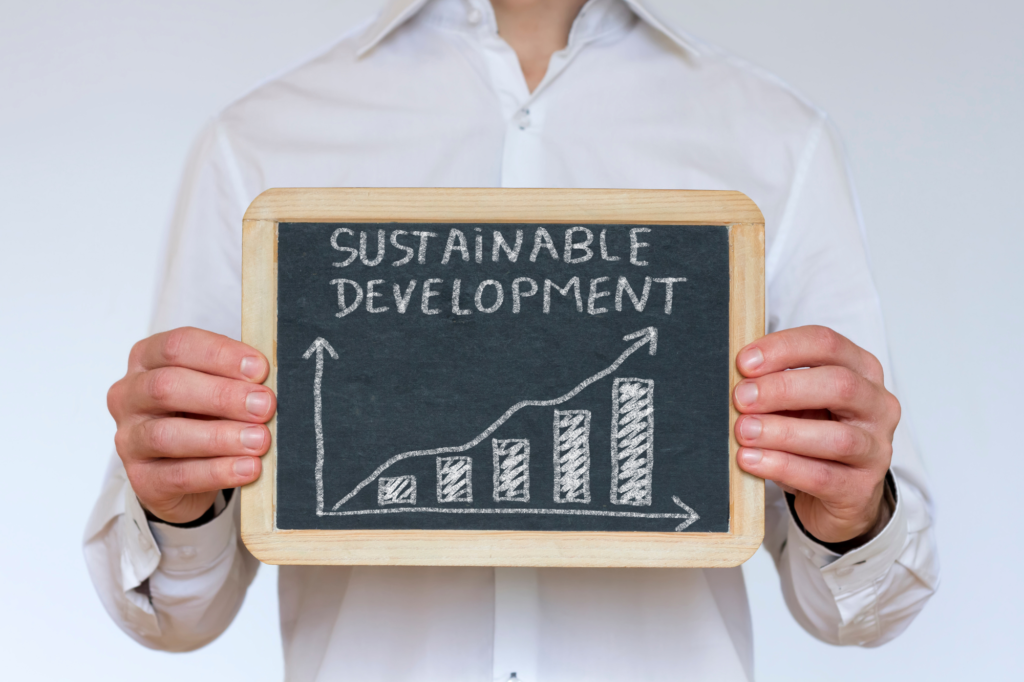
Sustainable Development and Lean Management
Sustainable development has become one of the key management concepts in today’s business world. This idea posits that economic development should occur in a way that considers a balance between the needs of present and future generations, takes care of the natural environment, and supports society. One of the tools that aids in achieving the goals of sustainable development is Lean Management. This management approach is based on the optimal use of resources, the elimination of waste, and continuous process improvement. In this article, we will explore how Lean Management contributes to the realization of sustainable development goals.
Table of contents
- Sustainable Development – Introduction to the Concept
- Lean Management – What is it and How Does it Work?
- Lean Management and the Economic Goals of Sustainable Development
- Lean Management and the Social Goals of Sustainable Development
- Lean Management and the Environmental Goals of Sustainable Development
- Success Stories – Organizations Implementing Lean Management
- Summary
1. Sustainable Development – Introduction to the Concept
Sustainable development is a concept that was first articulated in the report ‘Our Common Future,’ published in 1987 by the United Nations Commission on Environment and Development. This report presented the definition of sustainable development as ‘development that meets the needs of the present without compromising the ability of future generations to meet their own needs.’ This implies that actions taken today should not have a negative impact on future generations.
The goals of sustainable development encompass three main areas: economic, social, and environmental. This means that sustainable development aims not only to ensure economic stability but also to improve the living conditions of society and protect the natural environment.

2. Lean Management – What is it and How Does it Work?
Lean Management, also known as Lean Thinking or Lean Manufacturing, is a management approach that focuses on eliminating waste and improving processes within an organization. The origins of Lean Management trace back to Japan, where in the 1950s, the Toyota company developed this concept, creating the Toyota Production System, which became the precursor to Lean Management.
The main principles of Lean Management are:
- Elimination of Waste: reduction of all forms of waste in both production and service processes. Waste can take various forms, such as excessive time, surplus resources, excess inventory, unnecessary transportation, unnecessary movements, overprocessing, and product defects.
- Continuous Improvement: emphasizing the pursuit of continuous improvement in processes. Kaizen, a Japanese term meaning “continuous improvement,” is a key element of this approach. Employees are encouraged to identify and solve problems continuously, leading to gradual process improvement.
- Customer-Centric Approach: understanding the needs and expectations of customers. Processes are designed in a way that ensures the delivery of value to the customer by eliminating unnecessary elements and steps.
- Lean Production: promoting “just-in-time” production, meaning that products are manufactured only when there is a real demand. This helps reduce inventory and decrease costs associated with storage.
3. Lean Management and the Economic Goals of Sustainable Development
The first area where Lean Management can contribute to achieving sustainable development goals is in the economic realm. Sustainable development implies economic stability that enables meeting the needs of current generations without jeopardizing those of future generations.
Lean Management helps to achieve this goal by:
- Increased production efficiency: Eliminating waste and improving processes contribute to increased production efficiency. Companies implementing Lean Management can achieve higher production levels at lower costs.
- Cost reduction: Thanks to increased efficiency, companies can reduce production costs, resulting in higher profits.
- Adaptation to market changes: Lean Management helps organizations become more flexible and adaptable to market changes. This makes them better prepared for any economic challenges.
- Increased competitiveness: Companies implementing Lean Management are often more competitive in the market, contributing to the maintenance of economic stability.

4. Lean Management and the Social Goals of Sustainable Development
The second area where Lean Management can contribute to achieving sustainable development goals is in the social realm. Sustainable development involves improving the living conditions of society, including ensuring access to employment, education, healthcare, and fair wages.
Lean Management contributes to achieving these goals by:
- Job creation: by increasing production efficiency, organizations implementing Lean Management can secure more orders and expand operations, leading to the creation of new job opportunities.
- Skill enhancement for employees: Lean Management promotes continuous improvement processes, requiring employee engagement. This provides employees with opportunities for professional development and acquiring new skills.
- Improvement of working conditions: eliminating waste and continuous process improvement can also contribute to enhancing working conditions, positively impacting the well-being of employees.
- Strengthening employee engagement: Lean Management encourages employee involvement in the improvement process, which, in turn, can enhance their sense of belonging and motivation at work.
5. Lean Management and the Environmental Goals of Sustainable Development
The third area where Lean Management can contribute to achieving sustainable development goals is in the environmental realm. Sustainable development entails protecting the natural environment and minimizing the negative impact of economic activities on ecosystems.
Lean Management contributes to achieving these goals by:
- Reduction of waste: eliminating waste leads to a reduction in waste in production processes, reducing the negative impact on the environment.
- Conservation of resources and energy: through more efficient resource management and “just-in-time” production, Lean Management helps conserve resources and energy.
- Limiting CO2 emissions: reduced energy consumption and less waste contribute to a reduction in carbon dioxide emissions, positively impacting climate change.
- Long-term thinking: Lean Management promotes long-term thinking and consideration for the future, aligning with sustainable development principles.

6. Success Stories – Organizations Implementing Lean Management
Many organizations worldwide have successfully implemented Lean Management, achieving impressive results in sustainable development. One such example is Toyota, which pioneered Lean Management and maintains its position as a leader in car manufacturing while also prioritizing environmental conservation and contributing to local communities.
Another notable example is Boeing, which implemented Lean Management in its aviation production, leading to increased efficiency and simultaneous reductions in resource and energy consumption.
Success stories in the service sector can also be found, such as in hospitals or logistics companies that, through waste elimination and process improvement, have improved the quality of patient care and customer service.

7. Summary
In conclusion, Lean Management and sustainable development are not contradictory but rather complementary. Optimal resource utilization, waste reduction, continuous improvement, and delivering value to the customer are key elements of Lean Management that can support the goals of sustainable development. This synergy between Lean Management and sustainable development paves the way for creating more efficient, resilient, and socially responsible organizations that contribute to the overall well-being of people and the planet. In today’s world, where environmental and community concerns are increasingly vital, this combination becomes a crucial factor for success.

